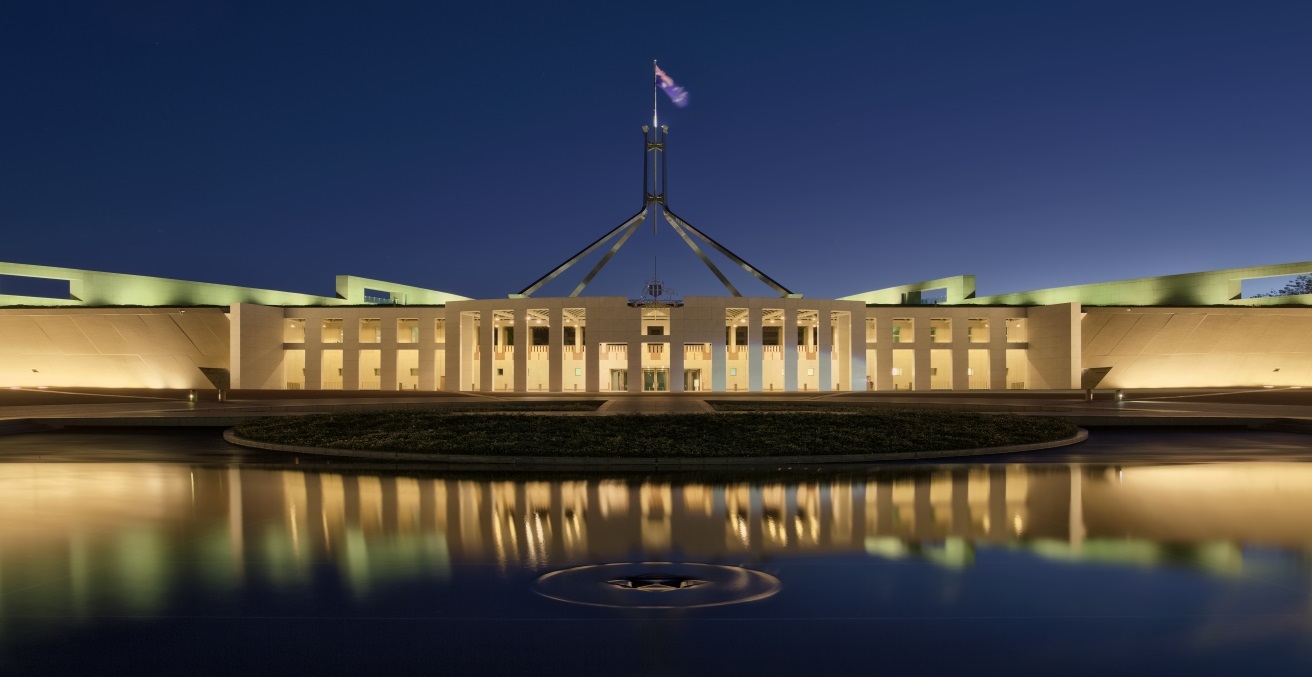Australian support for US strikes on Iran represents the latest instance of appeasement of the Trump administration’s damaging behaviour. Reconciling this with a stated commitment to rules, standards, and norms poses challenging questions for the future of Australia’s foreign policy.
Despite being a rhetorical cornerstone of foreign policy, the idea of “national interest” is typically vague and contested. Yet for the Albanese Government, alongside the usual commitment to security and prosperity, “rules, standards and norms” have in words at least emerged as a fundamental cornerstone.
In 2023, while speaking to the National Press Club, Australian Foreign Affairs Minister Penny Wong made the case for a “region that operates by rules, standards and norms” and that isn’t dominated by a “single major power to suit its own interests.”
In 2019, and while in opposition, Wong went further, explicitly rejecting the principle that “might is right,” in favour of an international system that ensures that “rules and norms determine outcomes rather than sheer power.” And in Senate Estimates just last year, Wong provided an expansive list, including a commitment to “a world where disputes are resolved by engagement, [and] negotiation…” rather than one in which they “are resolved by power alone.”
Far from isolated, these comments echo an oft stated commitment by ministers across the Albanese Government to the rules-based global order and the multilateral system, including on many occasions by Prime Minister Anthony Albanese himself.
This rhetoric suits Australia well in its geopolitical contest with China in the Pacific and beyond: appealing to concepts of self-determination, sovereignty, and respect for rules, standards, and norms is a useful counternarrative for a country seeking to build and maintain its influence against the sheer weight of China’s economic and security resources. However, it sits very uneasily alongside the government’s recent support for Donald Trump’s decision to bomb Iran.
There are of course a range of views on the strikes, and the Iranian government is far from a model of values and peace, having engaged in numerous examples of egregious behaviour in the past. It is difficult to see how these attacks contribute to the vision of an equitable and peaceful world. As Professor Donald Rothwell has argued, the strikes against Iran are not only illegal under international law, they set a concerning precedent for future state practice. Speaking more bluntly (and before the attacks occurred), Professor Wesley Widmaier argued that US military action against Iran risked being an “unmitigated disaster” both for the US and the region.
Moreover, the conflict as a whole is the personification of the “might is right” approach Wong has warned about, whereby a powerful actor can take unilateral action regardless of justification or norms. Israel’s decision to unilaterally attack Iran even as wider negotiations over its nuclear program were continuing are the actions of a state exercising its military superiority to achieve its own outcomes, regardless of the wider context or any sort of commitment to rules and norms. And a decision to bomb, for instance, a television station can hardly be seen as a contribution to global peace and stability.
So far, the Australian Government’s support for the strikes has hinged on the fact that it would prevent Iran obtaining a nuclear weapon. However, this justification is tenuous at best when considered against the US intelligence communities’ previous assertions that Iran was not in the process of building a nuclear weapon, and that no political decision had been made to achieve that. And while it is important to note that the Australian Government has since called for de-escalation, it is equally noteworthy that it had made the exact same calls leading up the attack (which could hardly be considered de-escalatory), before quickly changing its stance once the strikes had actually happened.
These contradictions point to an increasing problem for the Australian Government: balancing its own stated commitment to the rules-based order and an equitable international system with the increasingly disruptive and damaging behaviour and threats of the Trump administration.
While Australia has highlighted the importance of human-rights as a principle of the global system, Albanese repeatedly refused to condemn the Trump administration’s mooted plan to engage in the forced displacement of Palestinians from the Gaza Strip. Despite a longstanding rhetorical commitment to its “Pacific Family,” Australia has not publicly criticised the proposed US travel bans. Trump’s posturing on a takeover of Greenland went unchallenged. Albanese has made no effort to condemn the alarming authoritarian actions by the US administration, despite calling out his predecessor Scott Morrison for his failure to do so. And former Minister Ed Husic has criticised his own government’s approach to the humanitarian crisis in Gaza, arguing that Australia “can and should be doing more.” Moreover, all of this is happening as Australia works hard to secure the AUKUS agreement, further cementing a long-term commitment to the US.
It might be tempting to view the current US political moment as an aberration that can be weathered before normality returns. To do so, however, ignores the long-term trends in US political culture, and in particular the Republican party, that have not only led up to this moment, but show no sign of abating anytime soon. As Professor Rebecca Strating has argued, “Australia cannot assume American policy will ‘normalise’.” Likewise, while the Australian government may argue that avoiding public criticisms allows Australia to maintain private influence, there is little understanding of where that is paying off.
It is important to note that there are of course instances in which Australia has defied the US. The recent decision to sanction two Israeli government ministers or the refusal to increase defence spending by $40 billion a year are good examples. This is not to suggest that Australia should, as Albanese says, engage in a “running commentary” on the actions of the US government—there are no easy solutions to navigating a world in which your most powerful ally is intent on disrupting.
However, it is clear that the Albanese Government’s vision and rhetoric of a world order that is governed by rules and norms rather than solely the actions of powerful states is increasingly contradicted and compromised by Trump’s behaviour on the world stage, and its own failure to call this out. Unless the Australian government can reckon with this, its foreign policy risks abandoning the values on which it is supposedly built, to be left with only a commitment to a US alliance, maintained by appeasement towards an increasingly harmful US President.
Benjamin Fullarton is a PhD student in International Relations at the Australian National University. His research examines the politics of climate change, the environment, and resource extraction, as well as the wider politics and foreign policy of Australia, the United States, and the Pacific Islands Region. Previously, he worked as a policy advisor within the Australian Government, and prior to that, was a campaign strategist and political advisor within the Australian Labor Party and the wider labour movement.
This article is published under a Creative Commons License and may be republished with attribution.





